Baby Russian Tortoise – Exotic Pets for Sale
$249.99
Discover adorable and manageable Baby Russian Tortoises for sale. Perfect pets for all levels of experience. Explore their ideal size for smaller homes.
Category: TORTOISE for sale
Baby Russian Tortoise: A Complete Guide for Reptile Enthusiasts
The **baby Russian tortoise for sale** (*Testudo horsfieldii*), with its charming personality and manageable size, is a popular choice for both beginner and seasoned reptile enthusiasts. Known for its hardy nature, adaptability, and adorable demeanor, the Russian tortoise has become one of the most commonly kept species in captivity. If you’re considering bringing a **baby Russian tortoise** into your home, there’s a lot to learn to ensure your new pet thrives in its new environment.
This comprehensive guide will cover everything you need to know about baby Russian tortoises, from their natural habitat and behavior to their dietary needs, housing, and health care. We’ll also address some essential questions, such as the typical **baby Russian tortoise price**, what to expect when you see a **newborn baby Russian tortoise**, and where to find **baby Russian tortoises for sale**.
What is a Baby Russian Tortoise for sale?
A **baby Russian tortoise** refers to a hatchling or juvenile Russian tortoise that is typically less than two years old. Russian tortoises are a smaller species, growing to an average size of 6 to 8 inches in adulthood, which makes them a manageable pet for many homes. As babies, they are much smaller, often starting at around 1 to 2 inches in length when they first hatch.
The Russian tortoise is native to Central Asia, with populations found in countries such as Uzbekistan, Iran, Afghanistan, and Pakistan. They are well adapted to the harsh climates of these regions, where temperatures can fluctuate drastically between day and night. As a result, **baby Russian tortoises** are hardy creatures, capable of thriving in various conditions when cared for properly.
Appearance of a Baby Russian Tortoise for sale.
When you first bring home a **newborn baby Russian tortoise**, you’ll notice its distinct appearance. These tiny hatchlings have a domed shell that is typically a light tan or olive color with darker patches, often in shades of brown or black. The shell is slightly flatter than some other tortoise species, which helps them navigate the rocky, arid landscapes they call home.
As **baby Russian tortoises** grow, their shell will develop more defined scutes (the individual sections that make up the tortoise’s shell). One of the joys of keeping a Russian tortoise is watching these scutes develop over time, as each tortoise’s shell pattern is unique.
Behavior and Temperament of Baby Russian Tortoises for sale
Despite their small size, **baby Russian tortoises** have big personalities. They are known for being active, curious, and friendly, even as hatchlings. While they may be shy at first, it doesn’t take long for them to warm up to their environment and their owners. With regular interaction, they can become quite social, often recognizing their caretakers and coming to greet them.
Russian tortoises are diurnal, meaning they are most active during the day. You’ll often find your **baby Russian tortoise** exploring its enclosure, basking under a heat lamp, or foraging for food. As a desert-dwelling species, they are also adept at burrowing, so it’s important to provide a suitable substrate in their enclosure to allow for this natural behavior.
Housing a Baby Russian Tortoise
Creating the right environment for your **baby Russian tortoise** is essential to its health and well-being. While Russian tortoises are relatively small, they are highly active and require ample space to roam and explore. Here’s what you need to know about housing your baby tortoise:
#### Indoor Enclosure
For indoor enclosures, a large tortoise table or terrarium is recommended. The minimum size for a single **baby Russian tortoise** is around 2 feet by 4 feet, but larger enclosures are always better. If you plan on keeping more than one tortoise, you’ll need to provide even more space to prevent territorial disputes.
The enclosure should have a substrate that allows for digging and burrowing. Coconut coir, cypress mulch, or a mixture of soil and play sand are good options. Keep the substrate dry, as Russian tortoises are not fond of overly humid environments. However, a small, shallow water dish should always be available for drinking and soaking.
Lighting and Heating
Like all reptiles, **baby Russian tortoises** rely on external heat sources to regulate their body temperature. The enclosure should have a basking area that reaches 90-95°F during the day, with the cooler end of the enclosure around 70-75°F. At night, temperatures can drop slightly, but it’s essential to avoid temperatures below 60°F, as this can stress the tortoise.
In addition to heat, UVB lighting is crucial for **baby Russian tortoises** to help them synthesize vitamin D3 and absorb calcium. Without UVB light, tortoises can develop metabolic bone disease, which weakens their bones and shells. Provide UVB lighting for 10-12 hours a day, along with a regular day-night cycle to mimic their natural environment.
#### Outdoor Enclosure
If you live in a climate that stays warm year-round, an outdoor enclosure can be a great option for your **baby Russian tortoise**. Outdoor enclosures should be secure and predator-proof, with a combination of sunny basking areas and shaded spots. Russian tortoises are skilled diggers, so it’s essential to ensure the enclosure has deep enough walls to prevent escape.
One of the benefits of outdoor enclosures is that your tortoise can naturally graze on grasses and plants, which helps mimic their natural diet. However, always supervise them and ensure the plants they’re eating are safe and non-toxic.
Diet and Nutrition of Baby Russian Tortoises
A healthy diet is one of the most important aspects of caring for a **baby Russian tortoise**. In the wild, Russian tortoises are herbivores, primarily feeding on grasses, leafy greens, and occasional flowers. In captivity, their diet should consist of a variety of fiber-rich greens to ensure they receive the proper nutrients for healthy growth.
Recommended Foods for Baby Russian Tortoises
– **Grasses**: Orchard grass, Bermuda grass, and Timothy hay should make up the majority of their diet.
– **Leafy greens**: Offer a variety of dark, leafy greens such as collard greens, mustard greens, dandelion greens, and kale.
– **Vegetables**: Occasional vegetables like carrots, zucchini, and squash can be offered in moderation, but these should not make up the bulk of their diet.
– **Herbs and flowers**: Safe herbs and edible flowers, such as clover, hibiscus, and dandelion flowers, are great for variety.
Avoid feeding fruits to **baby Russian tortoises**, as the high sugar content can disrupt their digestion and lead to health issues. Additionally, it’s important to dust their food with a calcium supplement a few times a week to support healthy shell and bone development.
Always provide fresh water in a shallow dish, even though Russian tortoises are desert dwellers and get most of their hydration from their food. Regular soaking is also beneficial for **baby Russian tortoises** to help them stay hydrated and assist in maintaining healthy skin. Soaking should be done in shallow, warm water for about 15-30 minutes, once or twice a week, depending on your tortoise’s needs and the humidity levels in their environment.
Health Care and Monitoring
Proper health care is crucial for ensuring the longevity and well-being of your **baby Russian tortoise**. Regular monitoring and proactive care can help prevent many common health issues. Here are some key points to consider:
#### Regular Veterinary Check-Ups
Routine check-ups with a reptile veterinarian are essential for catching any health issues early. A vet specializing in reptiles can provide valuable advice on diet, housing, and any specific needs your tortoise may have. It’s especially important to schedule an initial vet visit soon after bringing home a **newborn baby Russian tortoise** to ensure that it is healthy and free from parasites or other conditions.
Signs of Health Problems
Keep an eye out for any signs of health issues, such as:
– **Lethargy**: A lack of activity or reduced interest in food can indicate a problem.
– **Shell Issues**: Soft or deformed shells, irregular growth, or shell rot (a fungal or bacterial infection) should be addressed immediately.
– **Respiratory Issues**: Symptoms like wheezing, nasal discharge, or labored breathing can indicate respiratory infections, often caused by poor environmental conditions.
– **Eye Problems**: Swollen, cloudy, or closed eyes may signal an infection or vitamin deficiency.
#### Common Health Issues
– **Metabolic Bone Disease (MBD)**: Caused by a lack of calcium or UVB exposure, MBD results in weak bones and a deformed shell. Ensure proper UVB lighting and calcium supplementation to prevent this condition.
– **Shell Rot**: This condition is characterized by soft, decaying areas on the shell, often caused by damp conditions. Maintaining a dry environment and proper hygiene can help prevent shell rot.
– **Parasites**: Internal parasites are common and can cause digestive issues or weight loss. Regular fecal exams and appropriate treatment are necessary if parasites are detected.
### Purchasing a Baby Russian Tortoise
If you’re considering buying a **baby Russian tortoise**, there are several factors to keep in mind to ensure you make a responsible and informed purchase. Here’s what you should know:
Finding Baby Russian Tortoises for Sale
You can find **baby Russian tortoises for sale** through various sources, including reptile breeders, pet stores, and online sellers. Reputable breeders who specialize in Russian tortoises are often the best choice, as they can provide detailed information about the tortoise’s lineage, health, and care.
#### Evaluating the Price
The **baby Russian tortoise price** can vary depending on factors such as the tortoise’s age, size, and the breeder’s location. On average, you might expect to pay between $150 to $300 for a healthy, well-cared-for baby Russian tortoise. Prices can vary based on the breeder’s reputation and the tortoise’s specific characteristics.
#### Ensuring a Healthy Purchase
When purchasing a **baby Russian tortoise**, look for signs of good health, such as clear eyes, a firm and well-formed shell, and a responsive, active demeanor. Avoid tortoises that appear lethargic, have soft or deformed shells, or show signs of respiratory or digestive issues. Request documentation about the tortoise’s health history and ask questions about its care and feeding.
Caring for a Newborn Baby Russian Tortoise
Caring for a **newborn baby Russian tortoise** requires attention to detail and a commitment to providing a suitable environment. Here are some additional tips for ensuring your baby tortoise’s health and well-being:
#### Setting Up the Habitat
Ensure the enclosure is set up correctly before bringing your baby tortoise home. The habitat should include appropriate substrate, lighting, heating, and humidity levels. Regularly monitor these conditions to maintain a stable environment.
#### Gradual Introduction
When you first bring your **baby Russian tortoise** home, allow it some time to adjust to its new environment. Introduce it gradually to its enclosure and avoid handling it excessively during the first few days to reduce stress.
Observing Behavior
Pay close attention to your tortoise’s behavior and appetite. A healthy baby Russian tortoise should be active and curious, with a good appetite. Any significant changes in behavior or eating habits should be addressed promptly.
Conclusion
A **baby Russian tortoise** can be a delightful and rewarding addition to your home. Their manageable size, hardy nature, and engaging personalities make them a popular choice for reptile enthusiasts. By providing a suitable habitat, a balanced diet, and regular health care, you can ensure your tortoise grows into a healthy and happy adult.
Understanding the **baby Russian tortoise price**, where to find **baby Russian tortoises for sale**, and how to care for a **newborn baby Russian tortoise** will help you make an informed decision and provide the best possible care for your new pet. With the right preparation and commitment, a baby Russian tortoise can thrive and become a cherished member of your family for many years to come.
1 review for Baby Russian Tortoise – Exotic Pets for Sale
Add a review Cancel reply
Related products
TORTOISE for sale
Baby Yellowfoot Tortoise for Sale – Exotic Reptile Pets | Blog
$199.99
TORTOISE for sale
$349.99
TORTOISE for sale
$224.99
TORTOISE for sale
Baby Marginated Tortoise for Sale – Adopt the Perfect Exotic Pet
$124.99
TORTOISE for sale
$174.99
$399.99
TORTOISE for sale
$249.99
TORTOISE for sale
Northern Zombensis Hingeback Tortoise for Sale – Exotic Pet Option
$249.99



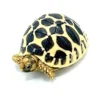
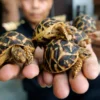


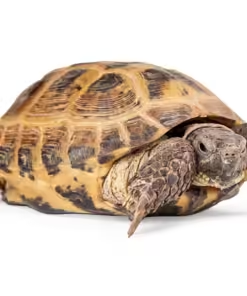
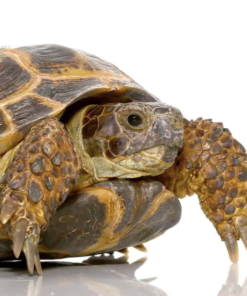
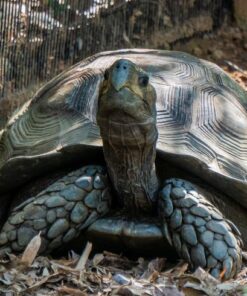

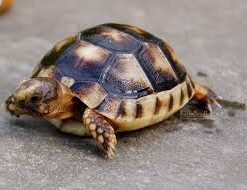


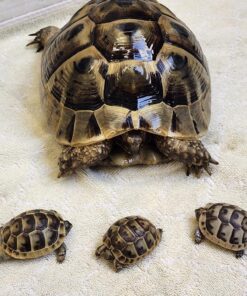
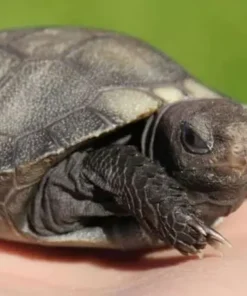
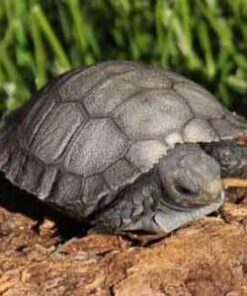
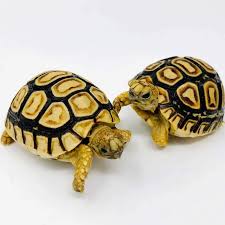
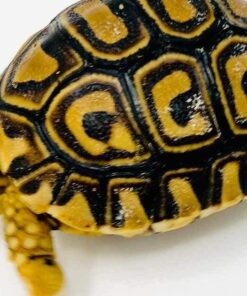


Matthew Martinez –
I absolutely love my Russian Tortoise! Their charming personality and hardy nature make them perfect pets. They’re easy to care for and enjoy exploring. Highly recommend for anyone seeking a delightful companion!